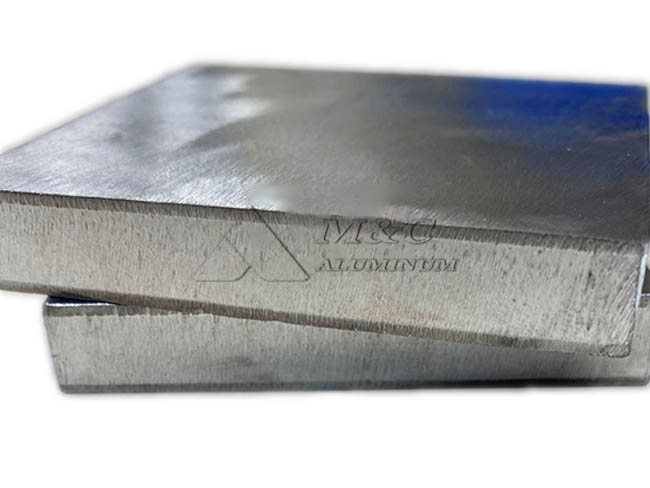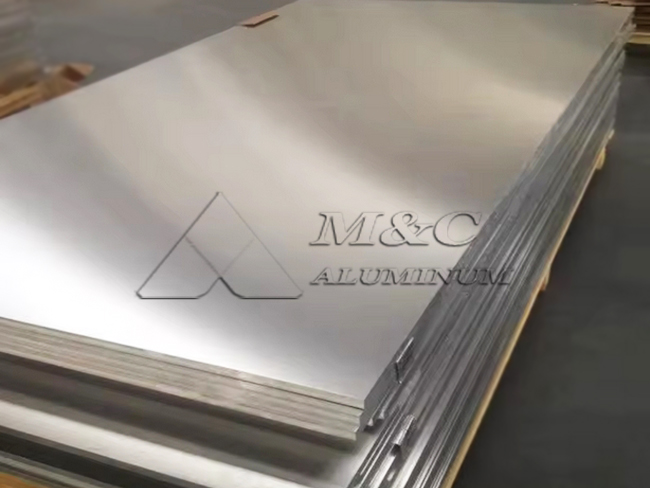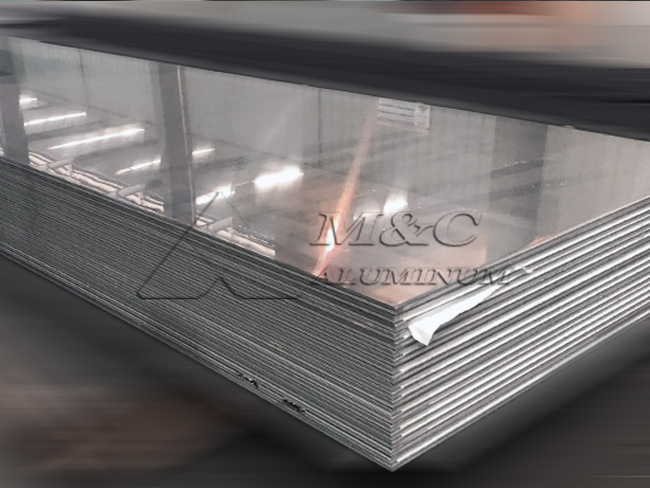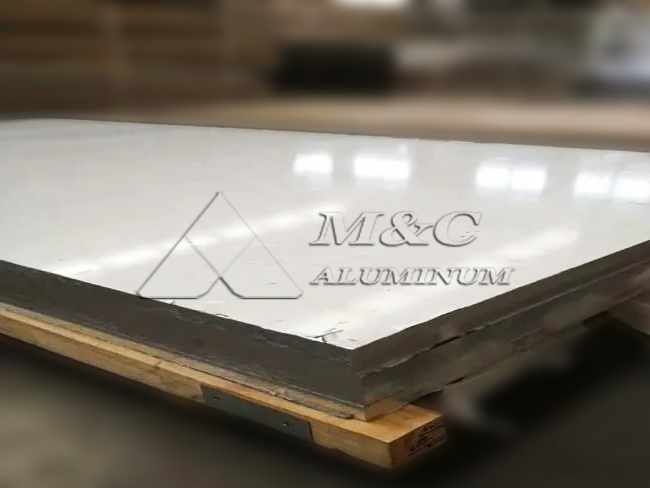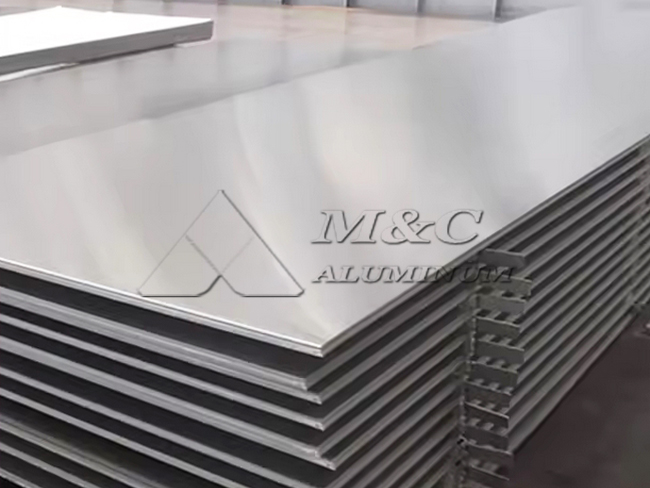Overview
5083 aluminum plate belongs to the Al-Mg series alloy with magnesium content ranging from 4.0% to 4.9%. It demonstrates excellent corrosion resistance in seawater environments, with a corrosion rate as low as 0.001 mm/a in H116 temper, effectively resisting salt spray and chloride ion attack.
The 5083 marine aluminum plate is mainly used in ship decks, engine foundations, side panels, and bottom outer plates.
Most ship structures require aluminum plates of 6 mm or above. The 5083 medium-thick plates (4.5-30 mm) not only ensure lightweight construction but also provide sufficient structural strength, making them suitable for decks, hulls, bottom plates, and bulkheads.
MC Aluminum's 5083 marine plates are certified by major international classification societies including DNV, ABS, LR, CCS, and BV, ensuring compliance with stringent shipbuilding standards.
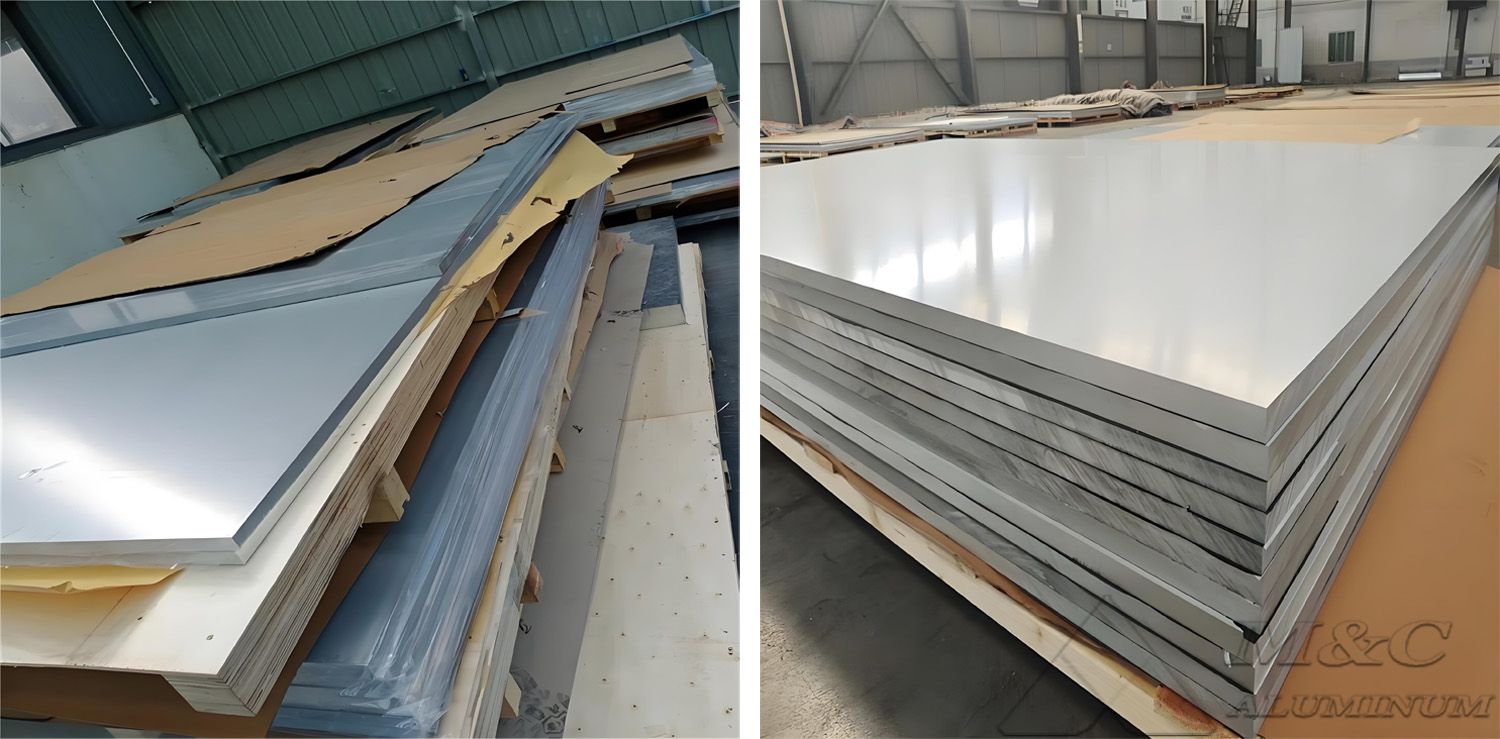
Common Tempers
5083-H116 and 5083-H321 are the most common tempers, specifically designed for marine applications requiring high corrosion resistance, particularly against pitting and stress corrosion.
Compared with H111 and H112, they are better suited for underwater marine environments.
Product Information
| Typical alloy grade | 5083 |
| Tempers | O, H32, H34, H22, H24, H2*, H111, H112, H116, H321, etc. |
| Thickness | 4.5-30 mm |
| Width | 1000-3100 mm |
| Length | 1000-13,000 mm |
| Certificates | BV / LR / ABS / CCS |
| MOQ | 1-3 tons |
Performance Characteristics of 5083 Marine Medium-Thick Aluminum Plates
1. Corrosion Resistance
5083 aluminum alloy offers outstanding resistance to seawater, fresh water, industrial atmospheres, and cryogenic environments. Even at -196°C, it maintains toughness and does not become brittle.
2. Weldability
5083 aluminum plates are compatible with various welding techniques such as TIG welding, MIG welding, and Friction Stir Welding (FSW). The welded joints provide high strength with minimal deformation, making 5083 an ideal material for ship structural components.
3. Low Density
Compared to other metallic materials, 5083 has lower density, effectively reducing the weight of ships and marine equipment, thereby improving payload capacity and fuel efficiency.
4. Good Formability
Despite its relatively high strength, 5083 maintains good plasticity, making it suitable for cold bending, stamping, and spinning processes.
Applications
Ship hull structures: Main hull, decks, bulkheads, and other key load-bearing parts.
Superstructures and outfitting: Used for cabins, wheelhouses, partition panels, as well as tanks, pipelines, instrument supports, and other outfitting components.
Other marine components: Manufacturing of sheet metal parts, support columns, and auxiliary marine structures.
Comparison with Other Marine Aluminum Alloys
5052 Alloy: Lower strength, more suitable for interior fittings and non-load-bearing parts of ships.
5086 Alloy: Similar in performance to 5083, but 5083 offers slightly higher strength, making it more suitable for medium-thick plate applications.
5456 Alloy: Contains more magnesium, providing higher strength, but with slightly lower corrosion resistance compared to 5083.
Original Source: https://www.marinealum.com/a/marine-grade-5083-medium-thick-aluminum-plate-corrosion-resistant.html
Tag: 5083 marine-grade aluminum plate 5083 medium-thick aluminum plate 5083 marine aluminum plate marine-grade medium-thick plate 5083 thick plate 3-50 mm marine aluminum plate 5083 H116 marine plate 5083 H321 marine plate 5083-H111 marine aluminum pla

